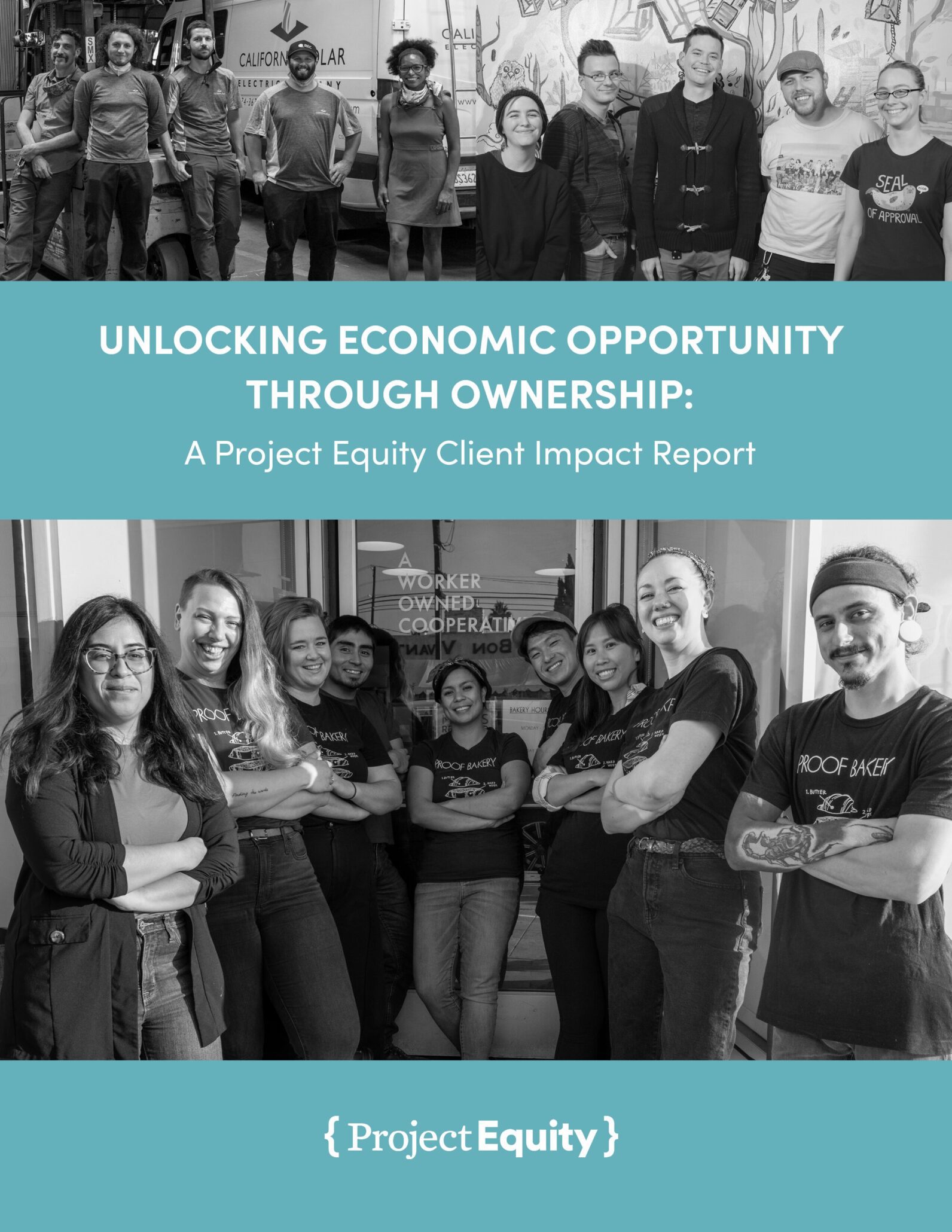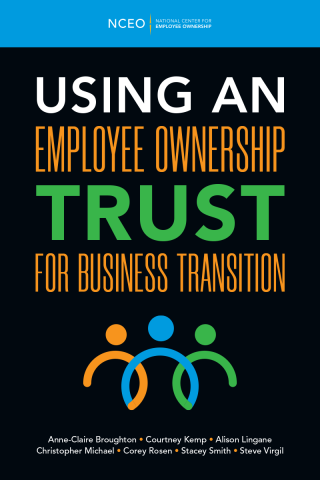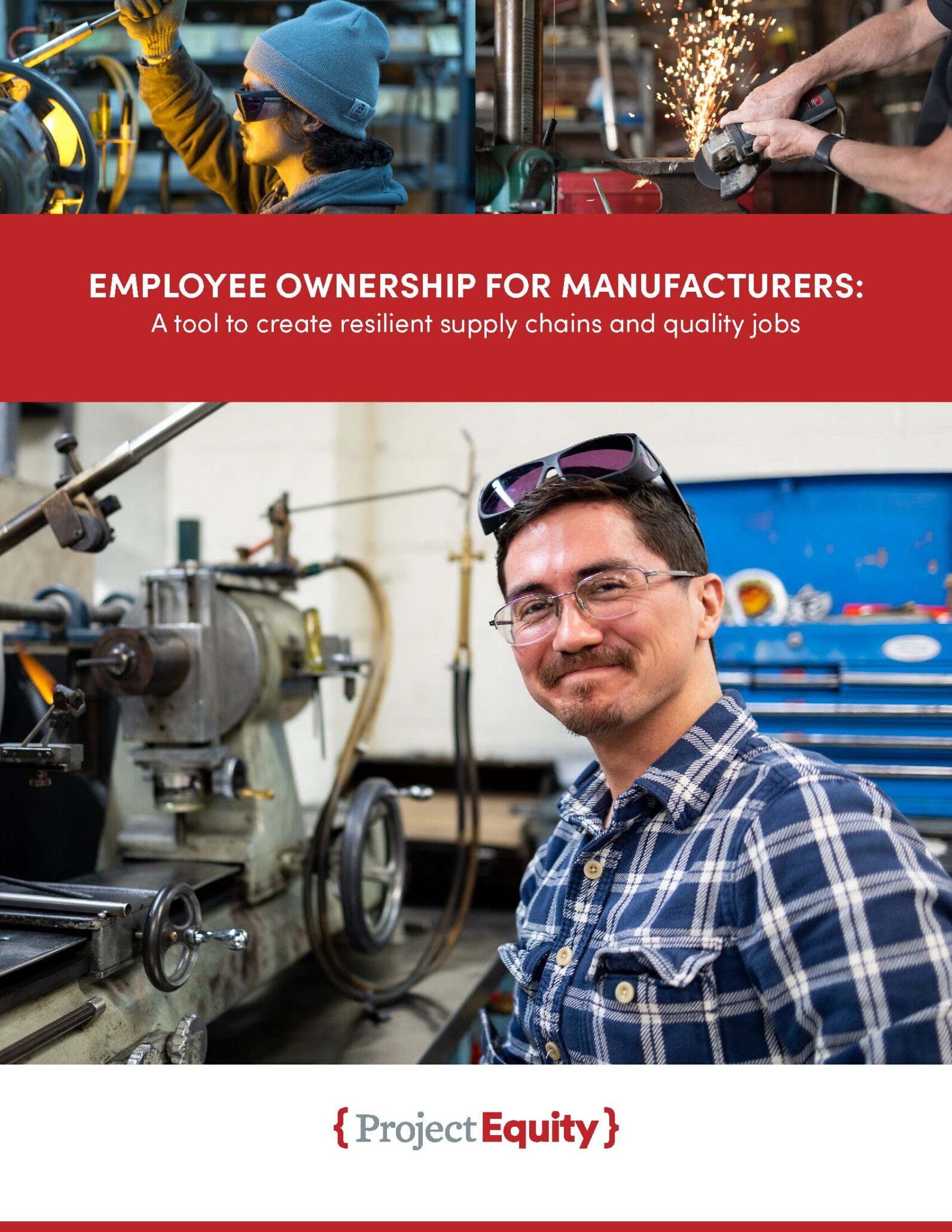June 2024
Unlocking Economic Opportunity Through Ownership
A Project Equity Client Impact Report
Discover how employee ownership (EO) is delivering real economic benefits for working people in Project Equity’s first Client Impact Report, “Unlocking Economic Opportunity Through Ownership.” In this report, we present key data from our Impact Measurement & Management (IMM) program, offering insights into the economic well-being of workers at 10 client businesses that Project Equity has helped transition to EO. Importantly, our findings highlight how employee-owned businesses can strategically combine distinct aspects of job quality—pay, profit sharing and benefits—to enhance workers’ financial security and overall well-being. While drawn from a limited sample of Project Equity’s clients, our data demonstrates how transitioning businesses to EO can be a catalyst for wealth creation and economic mobility.
Discover how employee ownership (EO) is delivering real economic benefits for working people in Project Equity’s first Client Impact Report, “Unlocking Economic Opportunity Through Ownership.” In this report, we present key data from our Impact Measurement & Management (IMM) program, offering insights into the economic well-being of workers at 10[...]




